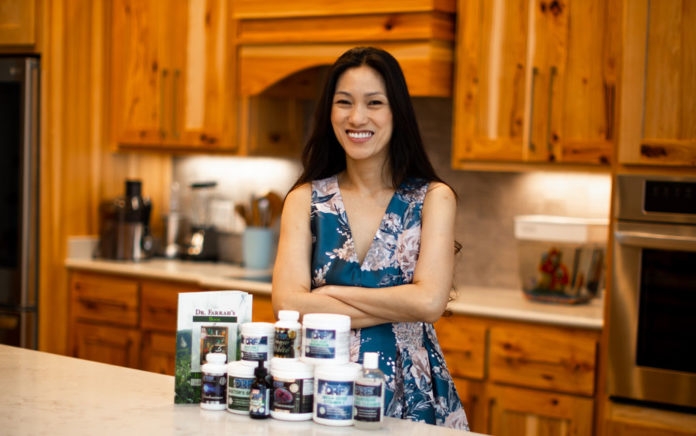
One of the greatest problems that we see with health information on the internet nowadays is the promotion of unscientific ideas through networked misinformation and disinformation campaigns. These highly managed and designed propaganda strategies are tailored and used to sway public opinion in favor of a promoted idea, narrative, product, or “influencer”, many of which are not in our best interest and lack any scientific evidence or rational basis.
A New York Times article recently stated that, “There’s a disease that has been spreading for years now. Like any resilient virus, it evolves to find new ways to attack us. It’s not in our bodies, but on the web. It has different names: misinformation, disinformation or distortions.” (1)
It further noted that, “The rise of false news is bad news for all of us. Misinformation can be a detriment to our well-being in a time when people are desperately seeking information such as health guidelines…” (1)
The problem has become so widespread in my home country The Philippines, that it resulted in a faculty publication at the University of Massachusetts Amherst called, “Architects of Networked Disinformation: Behind the Scenes of Troll Accounts and Fake News Production in the Philippines.” (2)
This in-depth study outlined the emergence and growth of the pay-to-play Philippines disinformation propaganda industry and how it has led to the rapid proliferation of “digital sweatshops” in the Philippines which push “paid troll” work to influence what people see and believe in social media from “click farms”. The authors interviewed players at all levels of this “industry” to understand their tactics and how widespread it is now. They noted that one of the many strategies used by these operatives are, “seeding revisionist history narratives”. (2) A great example of this is the ongoing disinformation campaign being used to try and paint the therapeutic successes that many found at my medical clinic in the Philippines as unreliable fantasies, despite significant verified scientific evidence to the contrary. That’s gaslighting folks. I never demanded advanced payment before treating a patient since I never charged for doctor visits, exams, diagnostics, or even minor surgical procedures at my facility. I have never promised a “cure” to anyone, nor have I ever told anyone that their cancer situation would be “easy”. I always encouraged every patient to audio record their consultations and that is the reason why no one can ever show any evidence of me promising a “cure” or an “easy” cancer remedy to anyone, because that has never happened, EVER. It is one thing to mislead the public by trying to discredit my documented clinical results and evidence-based philosophies which are bolstered to scientific bedrock, but it is far different when these defamatory propagandists start pushing their fake narratives beyond science and into the realms of complete absurdity.
One such area I will highlight here is the significant misinformation in medicine regarding the subject of nutritional and dietary supplements. I recently saw a very alarming video from a “Savior Complex”/Medical Doctor/wannabe Youtube starlet sharing their highly dangerous unsolicited opinions regarding nutritional supplementation, as if they have any claim to expertise whatsoever. They even went so far as to ridiculously state that, “vitamins are not that important.”
As is often the case, this self proclaimed “Real Doctor” often shares their opinions without providing any scientific studies or legitimate peer-reviewed data to validate such opinions. I’d sure like to see any single piece of peer-reviewed scientific evidence demonstrating that “vitamins are not that important”.
Show us the science!
This self proclaimed “Real Doctor” went so far as to criticize my recommendations for widespread micronutrient supplementation. Clearly, they are not looking at the opinions of recognized experts, peer reviewed science of the current nutrition situation or the significant government data that is readily available for anyone to see! They continue to attack me personally rather than using science as their backstop. Instead of managing their personal and professional failings and inadequacies with therapy like people normally do, they obsessively try to mock and abuse me to get their high from the reactions and adoration of the mob that follows them. Unfortunately, that’s how many bullies operate. They say they hate bullying, they bully you and then say they’re not bullying you. Next, they claim they’re the victim, not you. That’s gaslighting folks.
The important building blocks of my treatment philosophies rely heavily on lifestyle corrections such as scientifically demonstrated detoxification protocols, adoption of optimal dietary habits and high quality broad-spectrum nutritional supplementation to address dietary shortfalls. How are such sound scientific philosophies unsupportable by any legitimate physician?
But nowadays, social media has become a wild west style Comic-Con for mediocre health professionals with no experience in natural medicine who cosplay in scrubs acting like they are experts in the field dishing opinions, bad advice and disinformation.

When unscientific disinformation is released, the damage is done, and it just escalates from there. People can be quickly swept up into the lies and propaganda of a charismatic leader without realizing they’ve been misled with false narratives that brew hatred and contempt. Critical thinking skills are out the window because no one dares consider believing that they’ve been lied to. We need to look no further than Europe of the 1930’s as a reminder.
It’s time we look at the science of the matter.
What is a vitamin?
Vitamin– an organic (carbon-containing) compound necessary for normal physiological function that cannot be synthesized in adequate amounts and must therefore be obtained in the diet. (3)
Vitamins are essential nutrients that our bodies require to function properly.
The human body cannot synthesize a wide variety of vitamins. That is an extremely basic scientific principle, so we must either consume them in the diet or supplement the diet.
ANY healthcare professional promoting the absurd idea that vitamins are, “not that important” is either terribly uninformed, catastrophically untrained, or willfully promoting dangerously false and misleading health information. So, I will demonstrate here how promoting that idea is false and further debunk more misleading propaganda from these self-appointed scientific arbiters and “experts” who offer their opinions about critical medical/nutrition issues but aren’t capable enough to offer even the most basic evidence to support their “expert” opinions. Opinions are not evidence. 😊 Instead of making fun of, insulting and pranking my countrymen as a person with “Savior Complex”, why not step up and show the science to support your often laughable and ridiculous opinions? I show the science and legitimate experts opinions to support my views, why can’t you?
Dr. David L. Katz, M.D., the founding director of Yale University’s Yale-Griffin Prevention Research Center has addressed the offering of untrained “expert” clinical dietary advice in the AMA Journal of Ethics. Just because doctors eat, that doesn’t automatically make them experts in nutrition, and offering an “expert” nutrition opinion without legitimate expertise, is considered by many to be an ethical breach.
“There is the universal familiarity with diet that fosters contempt not for diet, of course, but for nutritional expertise. (4) Physicians with no genuine expertise in, say, neurosurgery are neither likely to broadcast detailed opinions on that topic nor to have their “expert” opinions solicited by media. Most topical domains in medicine enjoy such respect: we defer expert opinion and commentary to actual experts. Not so in nutrition, where the common knowledge that physicians are generally ill trained in this area is conjoined to routine invitations to physicians for their expert opinions on the matter. All too many are willing to provide theirs, absent any basis for actual expertise—such as specialty training in nutrition, published research in that area, or clinical experience in dietary counseling—and this, too, is an ethical lapse. In a culture that routinely fails to distinguish expertise from mere opinion or personal anecdote, we physicians should be doing all we can to establish relevant barriers to entry for expert opinion in this, as in all other matters of genuine medical significance.” (5)
DO YOU KNOW AS MUCH AS YOUR DOCTOR ABOUT NUTRITION
When doctors with little or no training in nutrition or a lack of significant clinical experience in nutrition are promoting unscientific advice in social media such as, “vitamins are not that important”, it is a dangerous recipe for potential disaster. People look to physicians to offer legitimate scientifically validated knowledge. It’s a very frightening state of affairs when a physician has a large social media following and they promote dangerous and unscientific ideas because they are either blind to the current state of legitimate science or incapable of absorbing scientific ideas that are beyond their ability to understand.
Matthew 15:14, “If, then, a blind man guides a blind man, both will fall into a pit.”
Having the ability to fold a paper airplane does not credential someone as an expert in aeronautical engineering nor does having a medical degree automatically make a person an expert in nutrition just because they know how to chew food and turn it into wastes to be excreted.
What does the peer-reviewed science show us about supplementation? Let’s define the key components first.
Vitamin– an organic (carbon-containing) compound necessary for normal physiological function that cannot be synthesized in adequate amounts and must therefore be obtained in the diet. (3)
Mineral– nutritionally significant element. Elements are composed of only one kind of atom. Minerals are inorganic, i.e., they do not contain carbon as do vitamins and other organic compounds. (3)
Micronutrient– a nutrient required by the body in small amounts, such as a vitamin or a mineral. (3)
We hope you enjoyed part 1 of this article in our Debunking Bad Advice series. For part 2, click the link below.
Should We Take Nutrition Supplements? – Part 2









